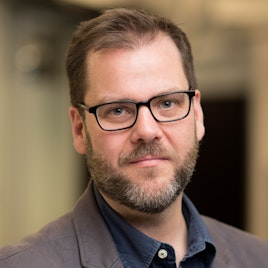From "Memory Project" to Citizen Journalism
By Thomas Hilbink
When Karen Gadbois evacuated from New Orleans in late August 1995, she was a textile artist. While away, she found the national news lacking in its coverage of significant events in her community. Local bloggers filled that void, bringing information and stories that wove together local details, which revealed patterns about the city as a whole.
On her return, Karen started a blog of her own, squanderedheritage.com, to document the homes and buildings that were being torn down after the storm. What began as “memory project” to preserve a record of disappearing architecture became the go-to source for information about “tear-downs” posting, among other important information, the agendas of the city committee charged with determining which homes would be torn down and when.
As Gadbois dug deeper, her investigations uncovered corruption in the New Orleans Affordable Housing (NOAH) program, a federally funded, city-run project intended to help New Orleanians renovate their homes after the floodwaters receded. This work, done in collaboration with local TV news reporter Lee Zurik, earned major national news awards, including a 2008 medal from Investigative Editors and Reporters and a 2010 Alfred I. DuPont Silver Baton award, the Pulitzer Prize for broadcast journalism. In 2009, the New Orleans weekly The Gambit named Gadbois one of its New Orleanians of the Year.
In pursuing her work, Gadbois saw that many important stories—neighborhood stories with city-wide impact—were not getting covered by local media. In response, she and other local journalists founded The Lens in 2009 to dig deep into the stories that impact communities that are too often overlooked.
Gadbois’ work exemplifies what the Open Society Foundations aim to achieve through funding The Lens and other organizations concerned with open governance: providing people with the information they need to participate in government decisions that impact their lives and the life of the city as a whole.
* * *
In the five years since Hurricane Katrina hit New Orleans and the levees broke, residents have developed innovative approaches to tackling some of the city’s—and the nation’s—most persistent problems: criminal justice reform, unresponsive government, and racial and economic inequality. In recognition of these efforts, during the month of August the Open Society Blog shines a light on people and organizations in New Orleans bringing change from within one of the country’s most important cities.

Until June 2022, Tom Hilbink was the director of the Grant Making Support Group.